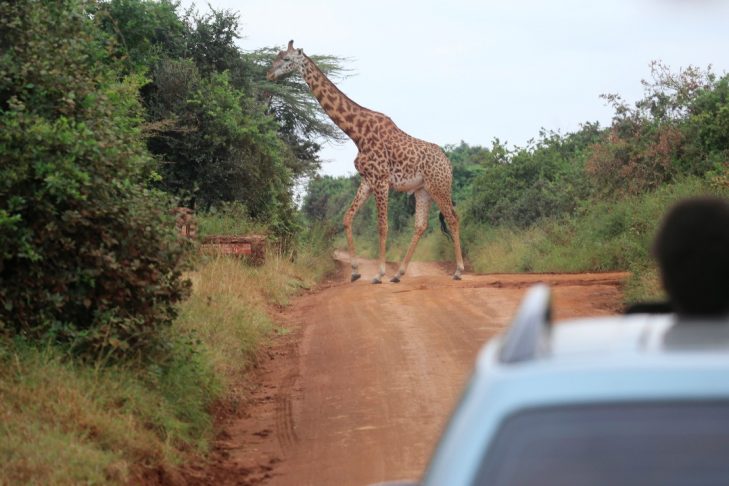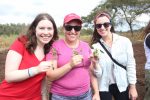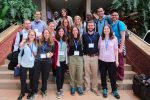Leading up to my bat mitzvah, my rabbi asked me to write an essay about my favorite Jewish holiday. While most pre-teens would likely pick Hanukkah or Purim, I selected Tu B’Shvat. I fully admit the choice was a bit nerdy, but I have always loved the outdoors and animals. Having a whole day dedicated to celebrating trees represents the importance Judaism places on caring for our environment. Tu B’Shvat reminds us that as Jews, we need to be good stewards of the environment. So, it was fitting that Project Inspire spent Shabbat learning about Kenyan ecology and conservation programs.
Our first stop was the African Fund for Endangered Wildlife Giraffe Center, home to a family of endangered Rothschild giraffes. The center was established in 1979, when the Rothschild giraffe population had dropped to just 130 animals, as a result of poaching and the clearing of their habitat for farmland. The center takes a two-pronged approach to conservation: increase the population through breeding and educate the public. They are particularly focused on teaching children with the hope that they will be kinder to the environment than the previous generations.
The highlight of the visit was feeding (and kissing!) the resident giraffes. We had the opportunity to learn some fun facts about these amazing animals, including that they communicate using their eyelashes, have four stomachs, have a black tongue to prevent sunburn and sleep standing up with their eyes wide open!
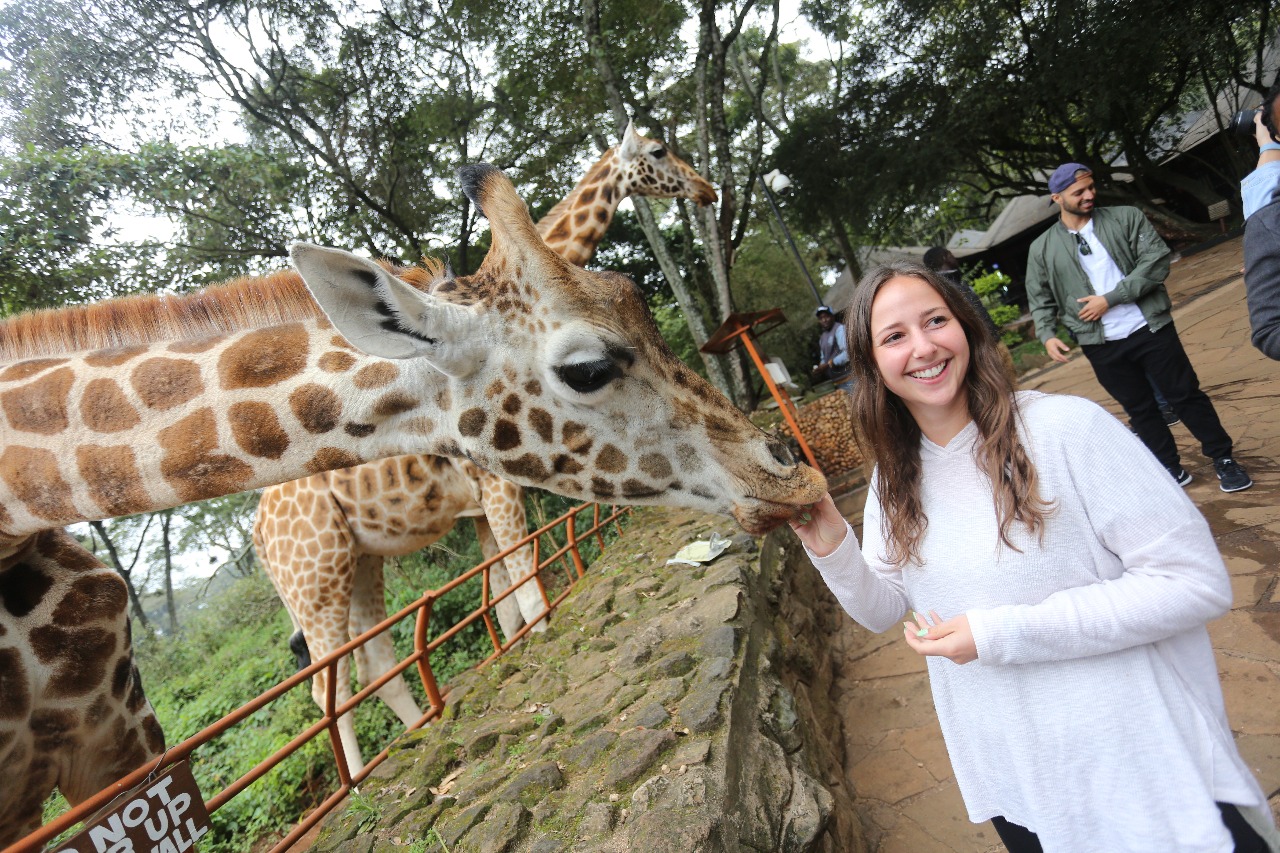
Our second stop was to the David Sheldrick Wildlife Trust, which is an orphanage for baby elephants (yes, it is as cute as it sounds). The trust was established in 1977 and works with the Kenya Wildlife Service on anti-poaching initiatives by providing aerial surveillance, wildlife support and a mobile veterinary unit. They also work to preserve habitats and educate the public on conservation through community outreach.
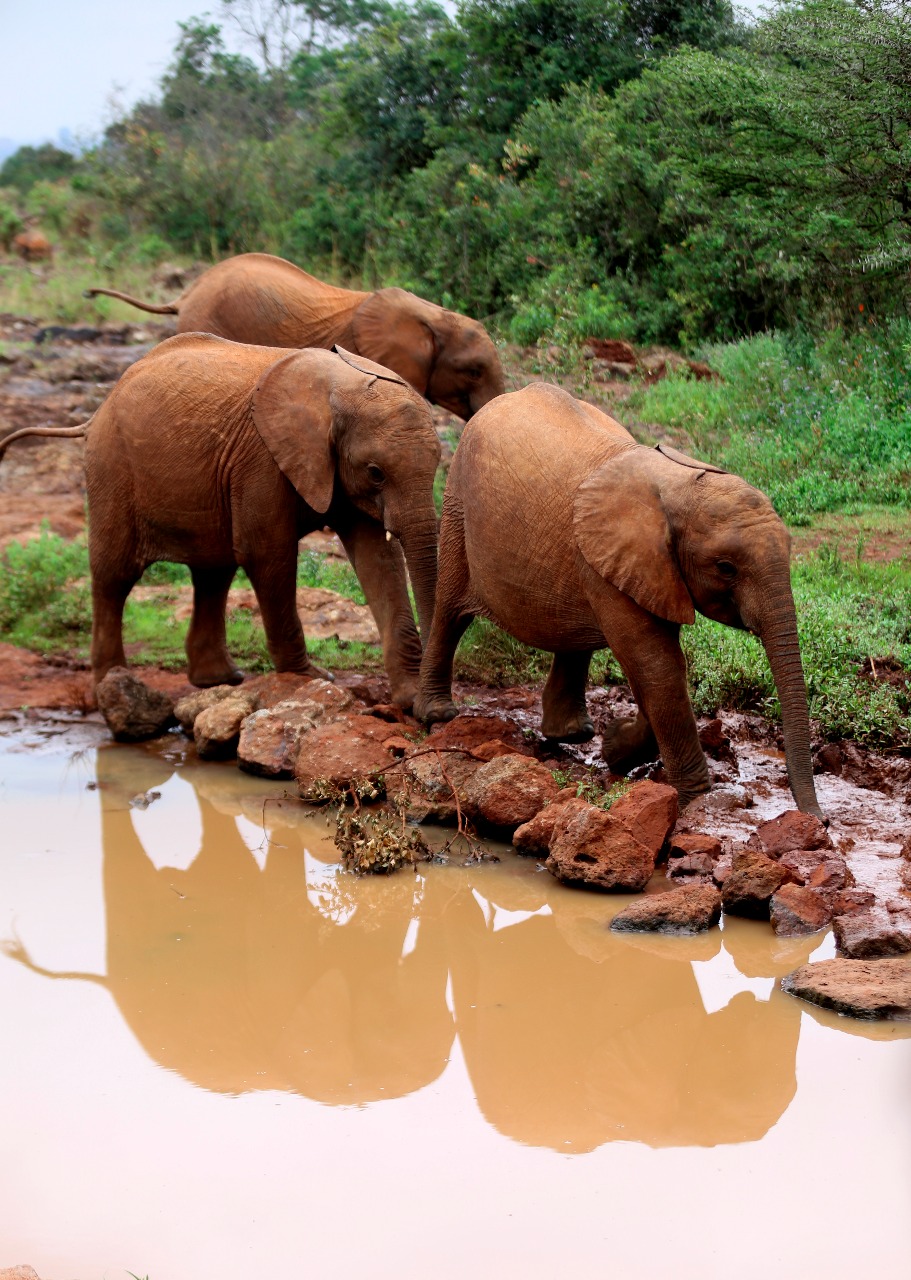
The trust is a refuge for 19 orphaned elephants that range in age from 3 months to nearly 3 years. The elephants lost their mothers to poaching, drought and illness, although one elephant arrived at the trust after being shot by a poacher. We were fortunate to visit during feeding time. The younger elephants ate leaves while the older elephants were given human formula from giant baby bottles. They would rough-house while the handlers would try to get them to finish their meal, much like human toddlers. It was a unique experience that led to Project Inspire “adopting” a baby elephant named Kuishi (Swahili for “to live”). Sadly, we can’t bring Kuishi home with us, but we are confident the trust will take excellent care of her and are happy to help with their work.
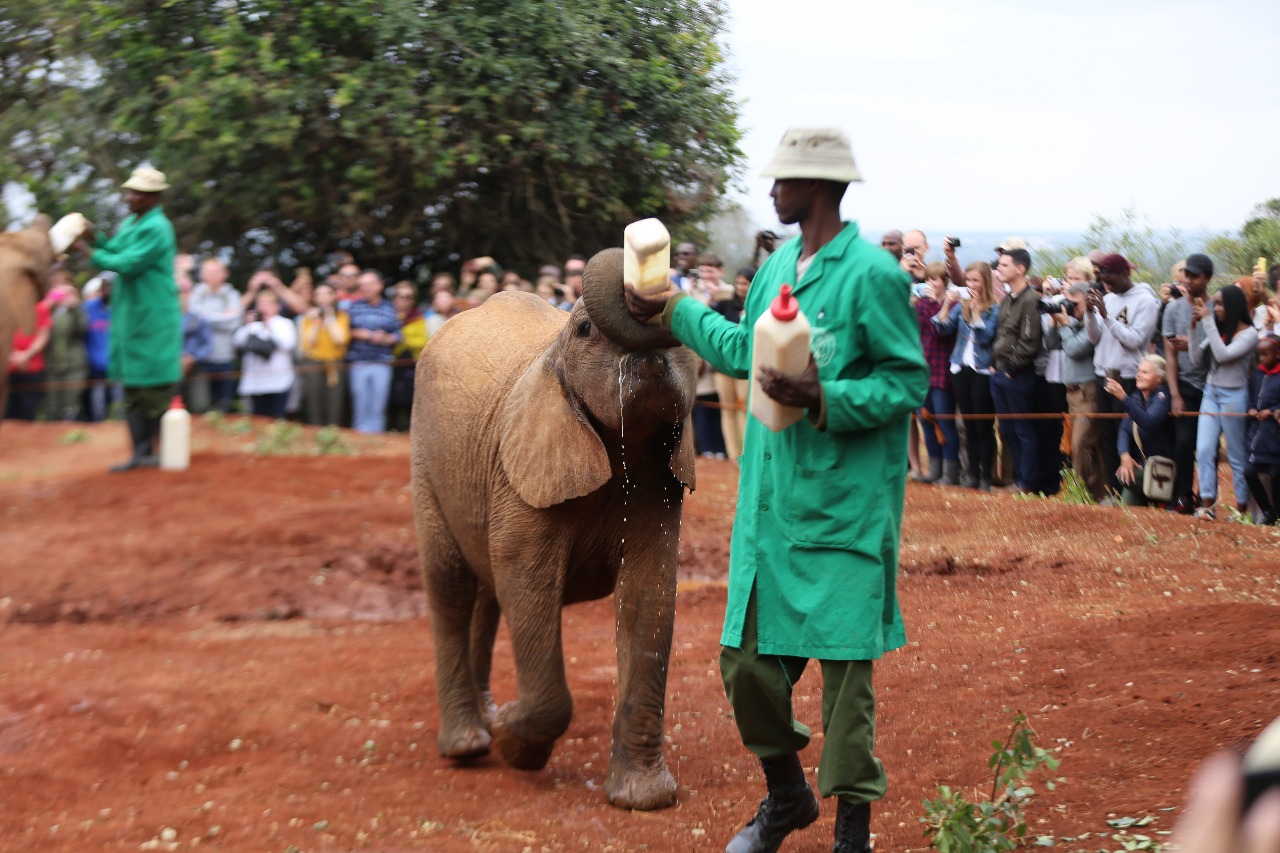
When feeding time was over, we were off for one last adventure that would allow many of us to cross a major item off our bucket-lists—safari! Our safari was in Nairobi National Park, which is right outside the city. The Nairobi skyline of mismatched buildings circle the park, creating an incredible backdrop to view some of Kenya’s most popular residents.
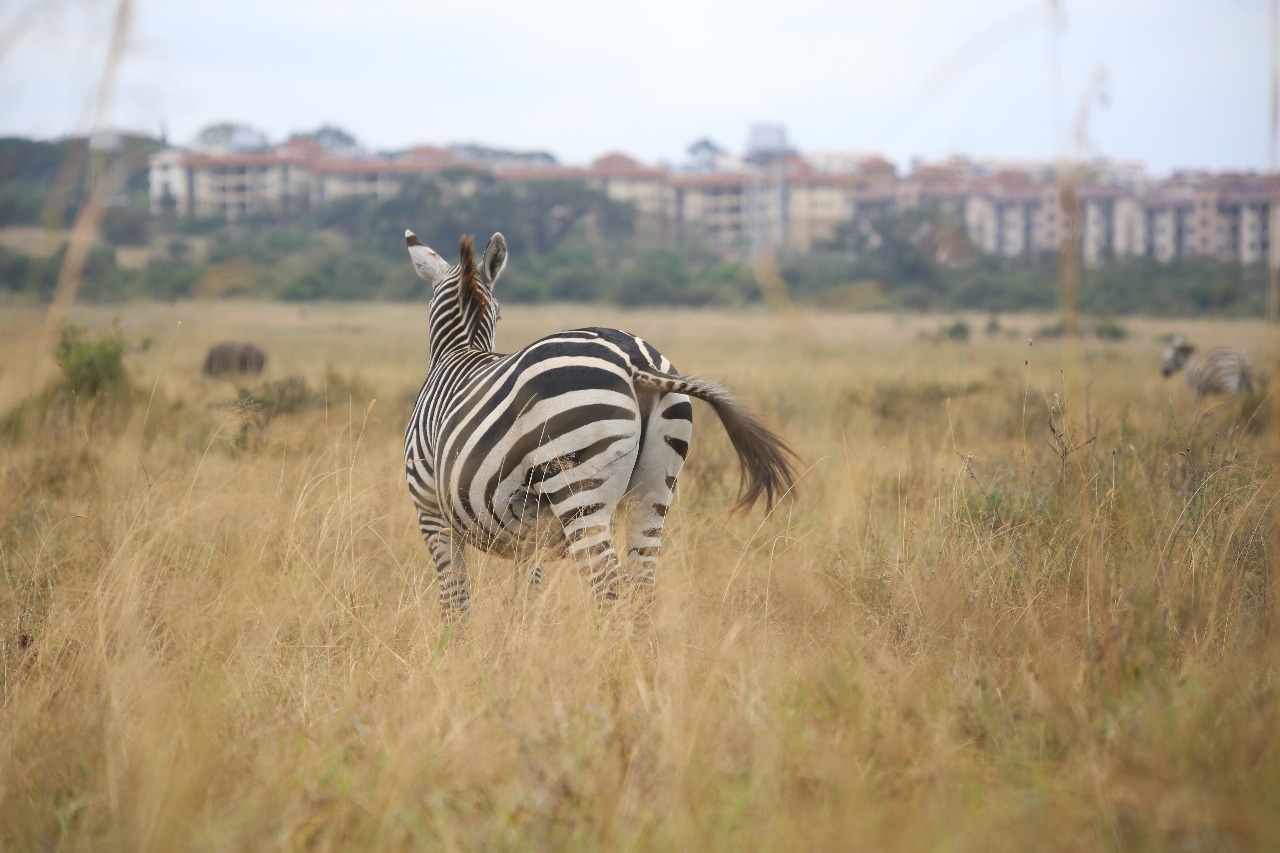
As every safari-goer enters the park they are greeted by two large piles of ash. The ashes are the remnants of ivory tusks and horns that were burnt by the Kenyan government to bring attention to the illegal ivory trade and demonstrate its commitment to preventing poaching. The most recent burn was in 2016 when 105 tons of tusks and 1.35 tons of horns were burned. The ivory came from 6,000 elephants and 135 rhinos, and represented 5 percent of the global stock with an estimated worth of over $150 million. It was a somber start but a good reminder of the importance of reserves like Nairobi National Park.
We were fortunate to spot numerous zebras, giraffes, warthogs, wildebeests, rhinos, antelope and a crocodile. It was amazing to witness these animals in their natural habitat, and the visit strengthened my commitment to conservation. Tu B’Shvat continues to be a favorite holiday of mine, and I am sure I will reflect and remember the efforts by Kenya to preserve its special ecosystem each year as it comes around.
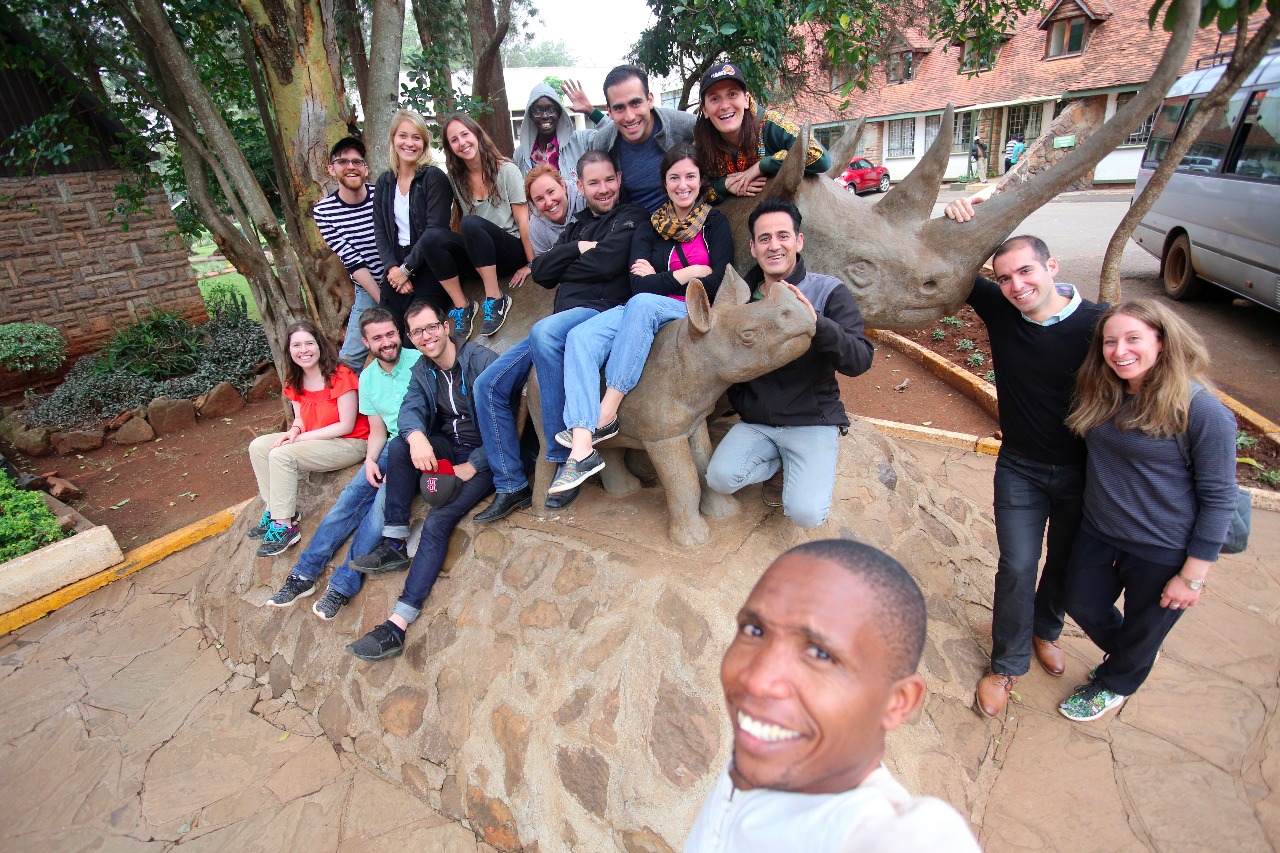
Follow along:
Blog: JewishBoston.com
Facebook: Project Inspire: Kenya
Twitter: @CJPIsrael and @IsraelinBoston



